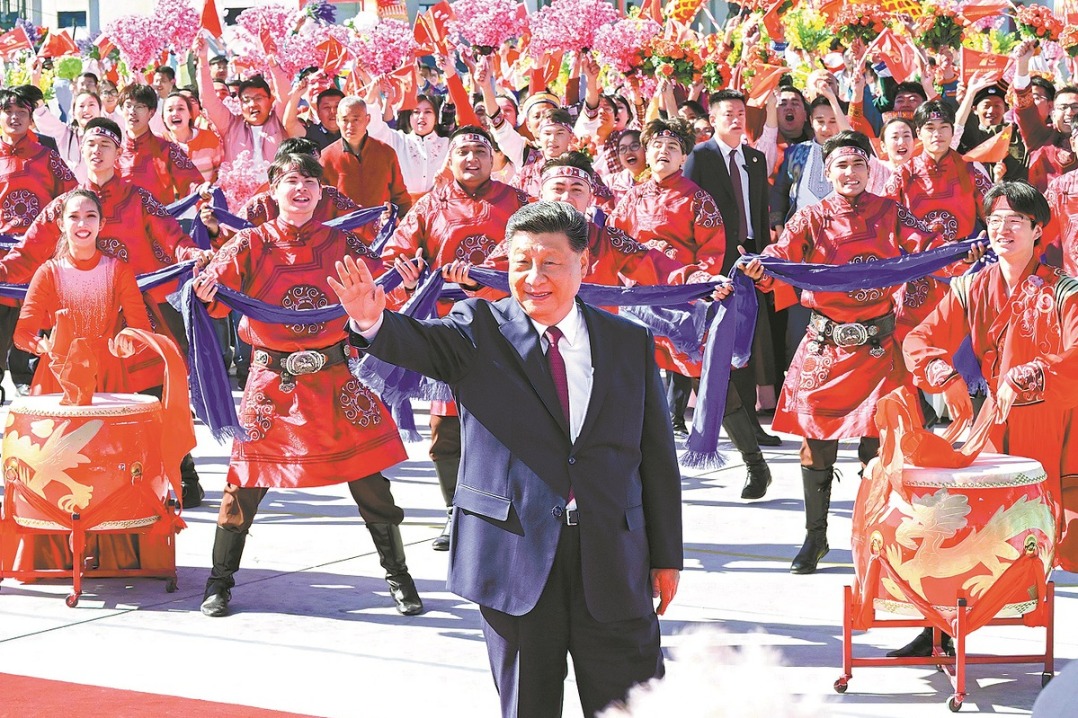Peking University mourns world-renowned landscape architect

Renowned Chinese landscape architect Yu Kongjian, champion of the "sponge city" concept, died in a plane crash in Brazil's Pantanal wetlands while making a film late Tuesday, Peking University said in an obituary Thursday.
Yu, 62, was dean and founder of Peking University's College of Architecture and Landscape, as well as the visionary behind China's groundbreaking sponge city initiative. His internationally acclaimed concept calls for urban environments that absorb, clean and reuse rainwater like a sponge, providing a sustainable solution to flooding and water scarcity. His work, which offered a Chinese model for sustainable urban development, earned him various accolades, including the International Federation of Landscape Architects' highest honor — the Sir Geoffrey Jellicoe Award.
Yu and three others — the pilot and two local filmmakers — were killed when their aircraft crashed in the Pantanal wetlands.
"Professor Yu's passing is an immense loss to Peking University and to the global field of ecological landscape design. He will be profoundly missed," the obituary read. "We extend our deepest condolences to his family, friends, colleagues and students. Our sincere sympathies are also extended to the families of the other victims in this tragedy. May they all rest in peace."
Yu, whose ecological ideas were shaped by the landscapes of his childhood in Dongyu village, Zhejiang province, dedicated his life to realizing a vision of harmony between humanity and nature, the university said. A passionate advocate for ecological civilization, he worked toward the goal of a "Beautiful China" and the healing of the planet. Shortly before the crash, he was engaged in fieldwork in the Pantanal wetlands, a vital global ecosystem, reflecting on the urgent need to protect the world's remaining natural sanctuaries, it added.
Brazilian President Luiz Inacio Lula da Silva expressed "sadness and consternation".
"During times of climate change, Yu became a global reference for sponge cities, which combine quality of life and environmental protection: something we want — and need — for the future," Lula said in a statement.
China's Foreign Ministry spokesman Guo Jiakun on Thursday voiced deep grief at Yu's passing and extended condolences to his family. The Chinese embassy in Brazil will continue to assist with aftermath arrangements, he said at a daily news conference.
In a "message from the dean" published on the college's website, Yu wrote that the increasing tension between humans and land, the energy crisis, the deterioration of ecological environments in both urban and rural areas, the dilemmas of transportation and living conditions, and the challenges brought by global climate change require a new look at the values and methods once adopted in the education and practice of architecture, landscape architecture, and urban and rural planning.
zoushuo@chinadaily.com.cn
- Peking University mourns world-renowned landscape architect
- Chinese chemist wins intl award
- Experts hail China's eco-achievements
- Tea maker infuses cuppa with flavors from across both sides of the Strait
- Old treasures write new chapters in history
- Attempts to rewrite history will never tear cultural roots





































